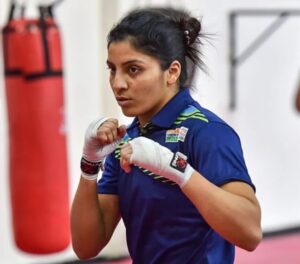Here’s a recollection about the life & achievements of wrestler, Khashaba Jadhav the man who caught the world’s attention again after Google made a doodle in January this year to celebrate his birth anniversary. He is the 1st Indian to have won an individual Olympic medal
Anubhav Talukdar
In the 1940s, a scrawny youth—who looked nothing like a wrestler—requested the sports teacher at Raja Ram College in India’s Kolhapur city in Maharashtra state to include his name in the wrestling event roster for yearly sports meet. The teacher turned him away, considering his ‘unsuitable’ physique. Not bogged down by the refusal, the youth approached college’s principal with the same request. Surprisingly, the Principal agreed and the youth surprised everyone by defeating his opponent who was far stronger and skilled than the amateur. A few years later, the youth— Khashaba Jadhav—went on to become a freestyle wrestler who clinched a bronze medal at 1952 Summer Olympics in Helsinki.
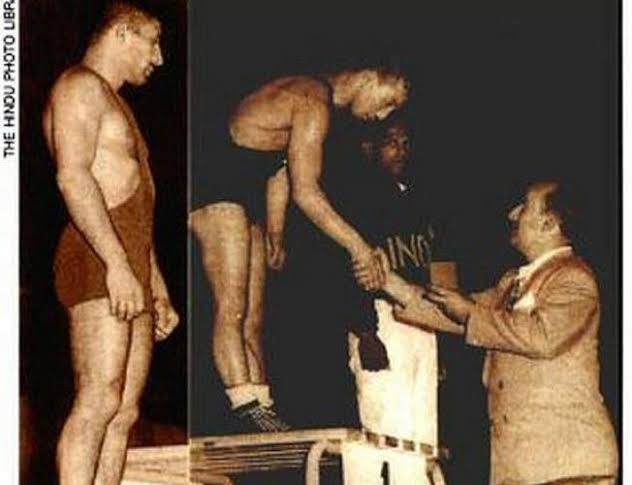
He was the first athlete from Independent India to win an individual medal in the Olympics. For about 44 years, he remained the only Indian to have won an Individual Olympic medal, until tennis star Leander Paes brought home a second one. Khashaba is no more. But his son, Ranjit Jadhav, recollects the life and achievements of the wrestler, who was popularly known as ‘Pocket Dynamo.’
Early days
Jadhav was the youngest of five sons of famed wrestler Dadasaheb Jadhav. He was born in the village of Goleshwar in Karad Taluka of Satara district in Maharashtra in 1926. Between 1940 and 1947, he attended Tilak High School in Karad Taluka. He was raised in a household where wrestling was a way of life, said Ranjit. Jadhav’s career in wrestling had its own share of ups and downs and wasn’t a smooth one. “It is a lesser-known fact that my father had even participated in the Quit India Movement,” said Ranjit, adding that Jadhav always wanted to establish a top-tier academy for training budding wrestlers in the country. “Such was his endurance and tenacity that he could complete 250 to 300 push-ups at once even as a teenager,” said his son.
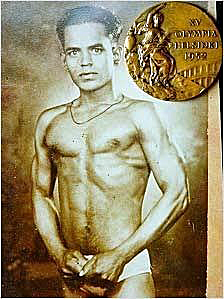
Wrestling career
Khashaba was initiated to wrestling by his father at the age of five. He later trained in wrestling skills while attending college under the instruction of Baburao Balawde and Belapuri Guruji. “Although Khashaba had a fierce enthusiasm for the game, he never neglected his studies and always scored good marks because he understood that in order to play well, one must develop their minds, which can be done only by acquiring knowledge,” Ranjit recollected. He was selected to represent India in the 1948 London Olympics. Finances were a constraint then. But, the Kohlapur Maharaja sponsored him. He trained in London under the direction of former lightweight World champion Rees Gardner.
Jadhav was placed sixth in the lightweight division despite having no prior experience of wrestling on a mat. Though Jadhav received praise from people all over the world, he was dissatisfied with his performance. He worked harder for the Helsinki Olympics, the following major competition.
Jadhav accelerated the pace of his training for the Helsinki Olympics over the course of the following four years, moving up in weight and competing in the 125 lb bantamweight division among wrestlers from 24 different nations.
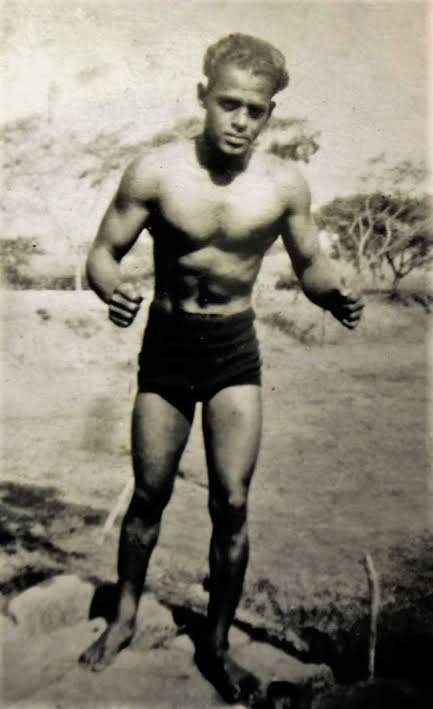
The glory of 1952 Helsinki Olympics
KD Jadhav was initially overlooked for the team that would compete in the Helsinki 1952 Olympics, despite having previously travelled to the Olympics and continuing to demonstrate his talent in India. Jadhav, who was 27 at the time, scurried from pillar to post collecting money from the locals. His former principal provided the largest contribution, mortgaging his own house to lend him Rs 7,000.
Jadhav performed admirably in the marathon bout, and Rashid Mammadbeyov, the Soviet Union’s most illustrious wrestler, was then asked to challenge him. When other athletes had authorities to back them up, Jadhav had no one to advocate for him during the 30-minute break in between the fights. Jadhav eventually lost the fight on a fever pitch because he was too worn out to muster the energy to fight back.
But, he scripted history by capturing India’s first individual bronze medal in wrestling following Independence by defeating wrestling titans from Canada, Mexico, and Germany in other matches. “More than 100 bullock carts led the parade as he returned home, and that day, the 15-minute trip from the train station to his house took seven hours,” said Ranjit.
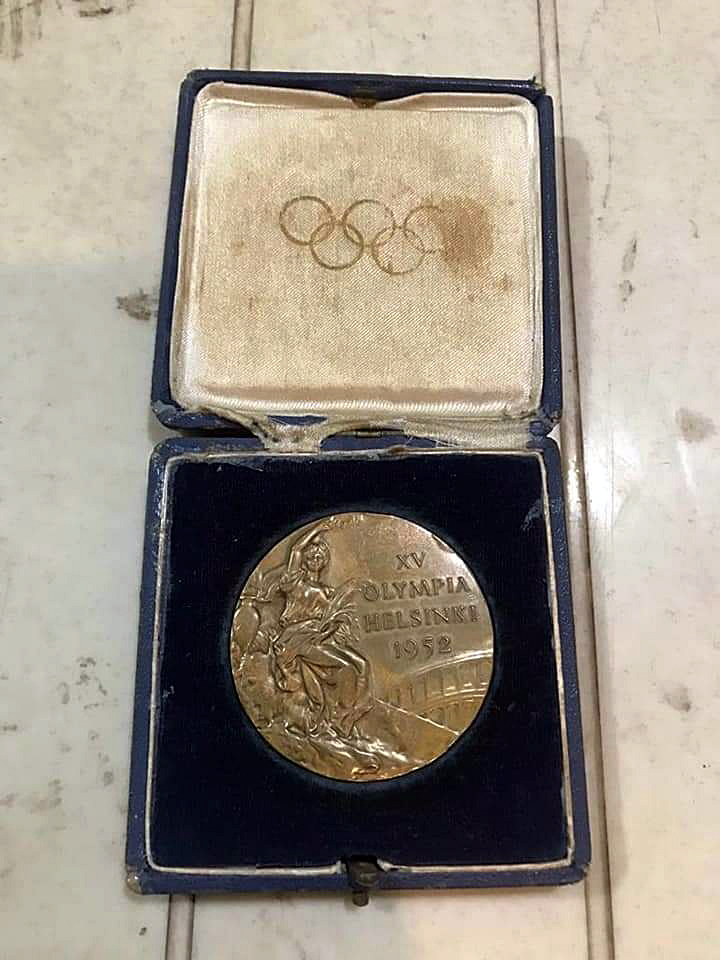
End of career
KD Jadhav organised fights and distributed the revenues to his creditors once he returned home with an Olympic medal. The first recipient of his creditors’ money was his kind college principal Khardikar. Residents of Goleshwar dedicated a building in a public square where five interlocking rings form the structure. Oddly enough, KD Jadhav also gave his home the name ‘Olympic Niwas’ (Olympic House). He became a sub-inspector in the Maharashtra police in 1955. He was all prepared to compete in the 1956 Melbourne Olympics, but a devastating knee injury put an end to his plans.
Nonetheless, KD Jadhav taught a number of police officers and occasionally experimented with police games. He diligently advanced through the Maharashtra police ranks, retiring in 1983 as an Assistant Commissioner.
Jadhav had to struggle for a pension later in life even though he spent twenty-seven years working for the police department before retiring as an Assistant Police Commissioner. He endured years of neglect from the sports federation and had to spend his final years in abject poverty. His wife struggled to receive any help from anyone.
The national hero’s life ended in agony when he was killed in a car accident on August 14, 1984. His untimely death was not what he deserved, but his triumphant performance and his earnest efforts will always be remembered.
Achievements
- Ended sixth in the flyweight division at the 1948 Summer Olympics in London
- Secured India’s first individual wrestling medal at the 1952 Helsinki Olympics
- He was one of the Indian athletes who took part in the 1982 Asian Games torch run
- The Maharashtra government honoured him with the Chhatrapati Puraskar in 1992
- He was presented with the Arjuna Award posthumously by the Indian government in 2001
- On January 15, 2023 Google honoured Khashaba by creating a doodle to celebrate his 97th birth anniversary



